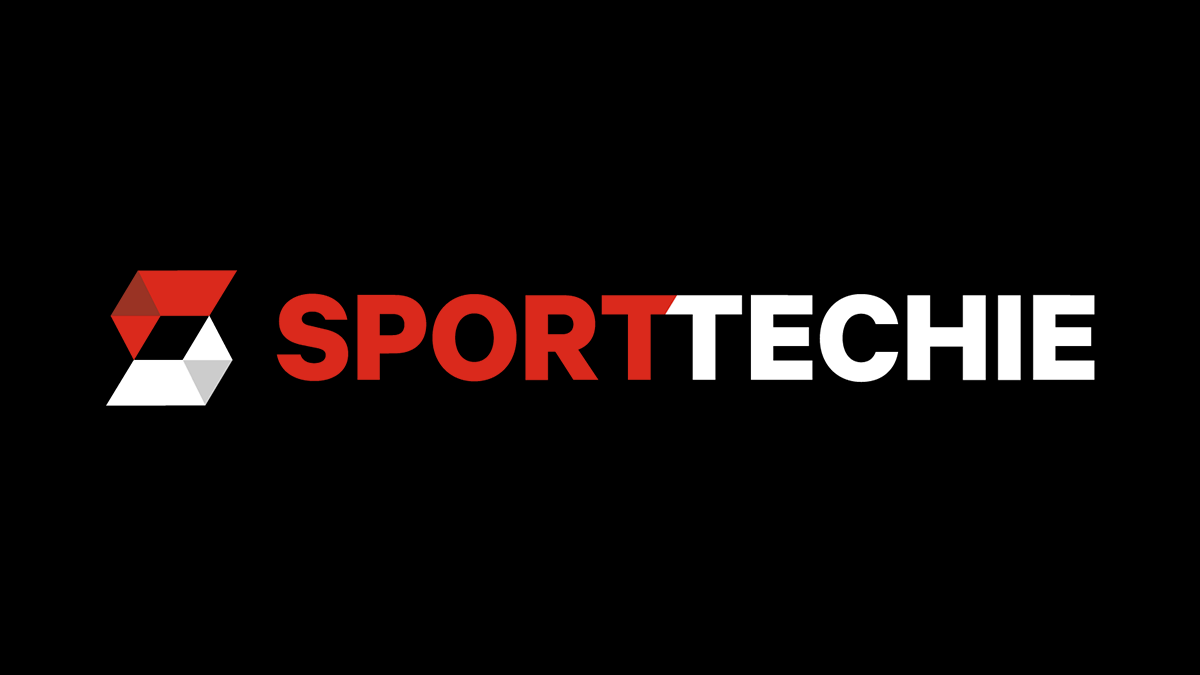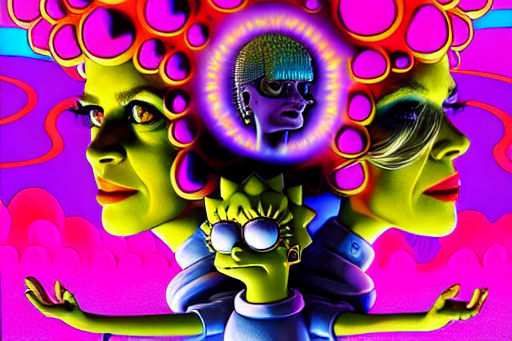FANtium, a platform that enables fans to invest in athletes through NFTs, has received $2 million in private pre-seed funding from a group that includes U.S. Open tennis champion Dominic Thiem and OneFootball founder Lucas von Cranach.
Founded by Jonathan Ludwig, an early investor in the fantasy soccer NFT company Sorare, FANtium is predicated on democratizing athlete financing via the blockchain. Athletes in individual sports such as tennis, golf and racing are able to sell shares of their future earnings in the form of NFTs — in some cases to help pay for travel and coaching — while purchasing fans benefit from the athlete’s real-time and future financial success, including sponsorships.
As well as earning a share of what the athlete makes, fans gain access to the player’s inner circle, as well as well as other perks. Young up-and-coming athletes are particularly incentivized by FANtium because — in exchange for their NFTs — they can earn the up-front money to assist in their rise and training.
FANtium expects to launch its initial athlete NFT drop in Q4 of 2022. Its latest investors include Sandbox COO and co-founder Sebastien Borget, Sorare’s growth leader Brian O’Hagan, Argent co-founder and CEO Itamar Lesuisse and Spatial co-founder Anand Agarawala. Thiem, the Australian tennis star and another investor, is known for his interest in technology, going back to the integration of Hawk-Eye Innovations’ automated line-calling on the pro tour.
English Premier League club Liverpool FC is partnering with Meta to sell digital merchandise in what is the first virtual sports team apparel available for paid purchase on Meta’s Avatars Store. Digital versions of Liverpool’s home and away kits are being sold for $1.99 each via the Avatars Store on Facebook, Messenger and Instagram. The kits will debut later this year in virtual reality for Meta’s Quest headsets.
Liverpool will receive a cut of the digital merchandise sales, which includes two red LFC-branded hoodie and sweatpants outfits in addition to the home and away jersey kits for a total of four available outfits. The virtual fashion items will be available to users in the U.S., UK, Canada, Mexico, Thailand, Spain and Italy. Cryptocurrency is not an accepted form of payment for digital avatar swag in the metaverse from the social media company formally known as Facebook.
“We’re thrilled that Liverpool fans can now use our Avatars to express their digital identity through the iconic colors and logo of their favorite club,” Jerry Newman, Meta Director of Media Partnerships, Northern Europe, said in a statement. “We’re also excited to help Liverpool begin to tap into the new metaverse economy, with digital apparel revenue that will be incremental to the apparel sales the club generates in the physical world.”
The NFL partnered with Meta around Super Bowl LVI to release branded Rams and Bengals digital shirts and helmets, but those avatar fashion items were available for free. “Our intent is to develop a marketplace where [digital] jerseys or shirts can be sold,” Meta’s Director, North America Sports Partnerships Rob Shaw said in April at SportTechie’s State Of The Industry conference. “There will be a business model where the monies can go back to the leagues and teams or whoever owns the IP.”
Fenway Sports Group-owned Liverpool joins fellow EPL club Everton and LaLiga club Real Betis as top soccer teams to sell virtual avatar fashion, though Real Betis and Everton’s items are for avatars on Fancurve that is separate from Meta’s various platforms. Earlier this week, Meta announced new accessories to workout in virtual reality and its new Quest Pro headset that will retail for $1,500. Meta also announced that its virtual avatars will be gaining legs starting next year.
Longtime Rugby World Cup sponsor Mastercard has debuted an audio-embedded Player of the Match trophy at the ongoing women’s World Cup in New Zealand. The financial company says it’s the world’s first sonic trophy, and speakers in the trophy play audio from the match via fans mic’d up in the stadium, as well as stadium atmosphere sounds and match broadcast commentary.
A new trophy is given to each player who wins the Mastercard Player of the Match for the tournament’s 26 games running through Nov. 12. Mastercard’s on-site team compiles and edits the audio during matches before awarding the trophy once the match is over. Mastercard worked with local cultural experts such as Māori fashion designer Nichola Te Kiri to design the trophy, which also blends melodies that pay homage to ceremonial traditions of the indigenous Aotearoa/New Zealand people.
“The trophy’s cloak-like shape, color and patterns represent a woman’s responsibility/role as a leader and her connection to her landscape,” Te Kiri said in a statement. “With the sonic element providing a commemoration of each match, I am truly privileged to pay homage to these outstanding athletes and their individual and unique narratives.”
Mastercard became a founding global partner of World Rugby’s Women in Rugby program in 2021. The company is also in its 25th year of sponsoring MLB.
The Israeli Basketball Association is enlisting Pixellot’s artificial intelligence technology to stream an equal amount of its men’s and women’s basketball games across eight separate leagues.
Through the partnership, Pixellot’s automated game streams can be viewed on the IBBA’s basketball platform, and Pixellot will also simultaneously become an official sponsor of the Israeli youth basketball leagues. Pixellot’s unmanned cameras automatically track player and ball movement, allowing the company to produce and disseminate as many as 150,000 games per month across over 70 countries.
Pixellot most recently expanded its sports video production technology throughout Canada after striking an August deal with the streaming app HomeTeam Live. But this new deal with the IBBA is closer to home for the Israel-based company and purportedly makes the IBBA the first basketball league to broadcast men’s and women’s leagues equitably.
Pixellot raised $161 million at a $500 million valuation earlier this year to move into Asia and Latin America and has spent much of the past two years developing Pixellot YOU, an AI platform that uses machine learning to record youth games and practices and then distribute automated highlights.
The IBBA has also made youth basketball a priority, particularly for female players. The league has 50 Israeli women’s and girls’ teams and, in recent years, has routinely televised women’s national and first division games on OTT platforms. Overall, the IBBA has 2,360 teams and 35,000 female and male players.
In Europe, FC Barcelona has also capitalized on Pixellot game streams. In the U.S., the NBA and MLB utilize Pixellot technology to livestream youth and college-centric events, while ESPN, Genius Sports, NBC’s SportsEngine and the National Federation of State High School Association have been Pixellot partners.
Vieww, the Bundesliga’s provider of its Video Assistant Referee (VAR) and Goal Line Technology (GLT) solutions, has received FIFA certification for both systems, joining Hawk-Eye Innovations as the only vendor with those dual licenses from the federation.
FIFA granted Vieww its certification for the VAR system prior to the 2022-23 season, and it is in place for both Germany’s top league as well as Bundesliga 2. The majority owner of Vieww is Sportec Solutions, which is a joint venture of Deltatre and the DFL, which is the German governing body for soccer.
Vieww was included in the first cohort of FIFA’s Innovation Program, which was announced in May 2021. Sportec Solutions is also Bundesliga’s provider for match data.
NESN will livestream Boston Bruins and Red Sox games in 4K/HDR, becoming the first U.S. regional sports network to show NHL and MLB games in that video quality within its own streaming app. Cloud media delivery company Akamai Technologies has partnered with NESN to facilitate the bandwidth for 4K/HDR streams on the NESN 360 streaming service.
The high-quality video is initially only available for all home game streams for the Bruins and Red Sox. NESN, which is owned by Fenway Sports Group, launched its regional direct-to-consumer streaming service in June for cord-cutting fans in the New England area to watch Bruins and Red Sox games, marking the first streaming offering of its kind from an RSN. A subscription to NESN 360 costs $29.99 per-month or $329.99 per-year.
NESN 360 debuted 4K/HDR during Red Sox home games this past MLB season and will extend to Bruins home games starting Oct. 15. New England-based fans can stream NESN 360 via their iPhone, Android, Apple TV, Fire TV and Google TV devices.
Predictive analytics company nVenue has launched an NFL micro-betting product and also added fantasy sports guru Matthew Berry to its advisory team.
The Dallas-based nVenue, a graduate of the Comcast Sports Tech Accelerator, had its national debut this summer as part of Apple TV+’s Friday night MLB broadcasts, powering pitch-by-pitch probabilities. Its AI models use historical data and live inputs to produce predictions in less than a second, and now an NFL product is available to media companies and sportsbooks via its NextPlayLive API.
Berry, a longtime ESPN analyst who recently joined NBC Sports, will advise nVenue on product development and help showcase its predictive markets through his content.
The latest Next Gen Stat produced by the NFL and Amazon Web Services is Coverage Classification, an identifier of team passing defensive tactics.
There are eight man and zone pass defenses included in Coverage Classification. The metric is computed using AI algorithms constructed by the AWS Machine Learning Solutions Lab that draws on the player tracking data gleaned from the Zebra Technologies RFID tags on every player’s shoulder pads. More than 60,000 passing plays from the past four seasons were included in the training data set.
The development of Coverage Classification was inspired by a submission to the NFL’s annual Big Data Bowl. Earlier this week, the league announced the fifth edition of the Kaggle-hosted, AWS-backed analytics contest. This year’s theme is calls on data scientists to analyze pass blocking and pass rushing.
PointsBet has launched an NFL microbet homepage on its app, which reportedly led to a 108% increase in live in-game wagering this past football weekend.
Marketed by Pointsbet as “lightning bets,” the app allows users to wager on the outcome of every NFL play and drive during a game. At this week’s CAA World Congress of Sport, the NBA’s deputy commissioner Mark Tatum suggested that in-game betting will soon account for 70% of all overall bets.
As a result, PointsBet has made an emphasis of micro-betting and claims that its “lightning bets” led to an overall 184% rise in unique customers using the platform week over week. It also said that during last Sunday night’s Ravens-Bengals game, its microbets were “the most popular live markets and third highest in terms of handle.”
PointsBet is also upgrading its app content, which will include videos from proprietary shows such as “The Straight Line with Ryan Leaf.” In 2021, PointBet acquired Ireland-based Banach Technology, whose software built the sports wagering platforms and algorithms that help advance PointsBet’s live “Always On” in-game platform.
This past January, PointsBet first trialed its live in-game wagering option during the Bengals-Raiders playoff game on NBC — considering PointsBet is in the midst of a five-year partnership as the official sports betting partner of NBCUniversal. PointsBet app users could view live odds to make spread and moneyline bets, minus any suspensions that could prevent the wagers from taking place.
The PointsBet app also allows microbets for NBA and college basketball games, with plans to branch into MLB and the World Cup. About 10 months ago, PointsBet signed a deal with Sportradar’s Live Channel Online service so that it could livestream games within its app.
The Toronto Raptors have installed a new 120-foot-long videoboard inside its practice facility to display real-time advanced shot metrics from Noah Basketball as well as game or practice footage during training sessions. Noah’s shot-tracking system leverages computer vision cameras mounted above rims to measure each shot’s arc, depth, and left-right positioning, as well as heat maps and tracking makes and misses.
The Raptors first installed Noah at its OVO Athletic Centre training facility in 2018. Coaches and players typically viewed the shot analytics on iPads or computers, but that process is now easier with the real-time data being shown during practices on the massive wall-hung videoboard. Noah uses facial recognition to identify each player and keep track of their individual shooting performances, while it is also providing automated voice feedback on shots inside the Raptors’ facility.
“My original thought was that we could have a Jumbotron courtside so that we could be doing things in practice and want to teach immediately,” Raptors coach Nick Nurse told The Canadian Press. “If they missed [a shot], they can see why. If it was too far to the left, if it was too long, it was too short, [the] arc was too flat, whatever.”
Nurse joined the board of directors at Noah Basketball in 2021. The company’s shot-tracking system is used by more than a dozen NBA teams, including the Clippers, Knicks, Trail Blazers, Suns and Warriors, as well as hundreds of college basketball programs. Ice Cube’s Big3 basketball league also partnered with Noah earlier this year.
“We use Noah everyday,” Clippers guard Terance Mann told SportTechie in August. “Once you walk in the cameras recognize your face. It tracks all your shots, your makes, your arc, how accurate your shot is left to right. So I love Noah and I like the feedback it gives. It gives you the day, it gives you the week, it gives you the month, it gives you the year, so it’s pretty cool to see.
A triumvirate of NFT companies have partnered with former San Francisco 49ers linebacker Patrick Willis to create Universe 52, a private Web3 platform that will connect fans with the former five-time All-Pro linebacker.
Through Summit NFT Studios and Flux88 — and ultimately powered by blockchain-centric Fanaply — the public can buy NFT membership passes starting Wednesday that will unlock the chance to interact with Willis at 49ers home games this season, to attend a watch party with him for the 49ers-Rams rematch on October 30 and to own some of his personal game memorabilia.
The NFT passes are decorated with artwork from Rob Prior Studios, which has previously done animations with Marvel, D.C., Todd McFarlane, Kevin Eastman and Image Comics. Fanaply, a turnkey NFT provider, is behind the project and, since 2018, has developed NFTs in conjunction with the New Jersey Devils, Colorado Avalanche, Oklahoma City Thunder, Pac-12 Conference and Kentucky Derby. It also produced NFTs for the Dallas Stars’ Tyler Sequin, similar to the Willis platform.
Flux88 Studios has previously created NFTs for Trevor Noah, Vin Scully and Bret Boone, among others, while Summit NFT Studios — after debuting an in-house NFT collection in 2021 — is pivoting now towards sports tokens.



